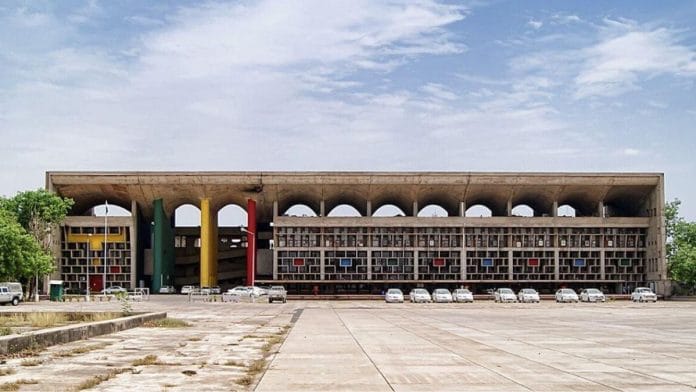Gurugram: The compensation for road accident victims who lost their lives before joining a new job should be computed based on the salary they were offered, rather than on a notional private employment income, the Punjab and Haryana High Court has ruled.
The ruling has come with enhanced compensation under the 1988 Motor Vehicles Act for the mother of a youth road accident victim, who died before he could join a government job he secured.
The Motor Accident Claims Tribunal earlier granted his mother Rs 15.93 lakh.
The HC has increased it to Rs 44.5 lakh, noting that the tribunal erred in its approach. For compensation, the tribunal should have assessed the victim’s assured future earnings based on the salary he could have drawn at the new job, the HC stated. Instead, the tribunal considered the notional income for unemployed victims, it added.
On 21 February 2018, 21-year-old Sonu was riding pillion on a motorcycle being driven by his friend, Randhir, when a speeding dumper collided head-on with them. Driven by Baljit Singh, the dumper—registration HR-46D-4999—hit them near a brick kiln on the Kanwari-Hisar road in Haryana. Sonu was left with severe head injuries and died the next day at Agroha Medical College.
The police then filed an FIR at the Sadar Hisar police station under rash driving and death by negligence charges. The victim’s mother, Munni Devi, his sole claimant, approached the tribunal in Hisar, demanding Rs 2 crore, because of her dependency on Sonu.
In a 28 February 2022 order, the tribunal confirmed Singh’s negligence depending on eyewitness testimony, FIR, site plans, and a police charge sheet.
The tribunal, however, treated Sonu as a privately employed person and fixed his notional monthly income at Rs 10,000. To this, it added only two-fifths of his future ‘prospects’. This was followed by applying the 18 multiplier based on his age, followed by deducting 50 percent of the sum as a bachelor’s personal expense.
Through these calculations, a Rs 15.12 lakh dependency loss was arrived at. Then, the tribunal added Rs 44,000 towards the parental consortium, Rs 16,500 each for funeral expenses and loss of estate, and Rs 4,700 for medical costs. At six percent interest, Munni Devi’s total compensation was calculated to be Rs 15.93 lakh.
Appeal in HC
Munni Devi appealed to the high court, arguing that the tribunal ignored her son’s selection to a permanent post as a postman or mail guard in the government department of posts, despite concrete evidence.
The claimant placed on the court record an appointment letter dated 3 May 2021, a selection list from the 2016 exam he had sat for, and training directions showing he cleared the selection process. Sonu was set to join with a starting salary under Pay Level-3 of the 7th Central Pay Commission.
In a 17 November 2025 judgment, Justice Virinder Aggarwal ruled in favour of the appellant, criticising the tribunal for dismissing the appointment as “speculative”.
Sonu hadn’t physically joined work due to his untimely death, the tribunal had held. The HC, on the other hand, held that once an appointment letter is issued after a completed selection and training begins, the future earnings become a “reasonable certainty”, rather than hypothetical.
The HC, thereby, recalculated Sonu’s monthly income as Rs 27,000. This included basic pay of Rs 21,700, plus allowances, such as transport allowance of Rs 3,600, as well as housing and rent allowance at eight percent. Then, it considered 50 percent of future ‘prospects’ for an under-40 permanent government employee and retained the multiplier and deductions, as set by the tribunal.
Considering an annual income of Rs 3.24 lakh and prospects of Rs 1.62 lakh— followed by a 50 percent deduction and considering a Rs 2.43 lakh annual claim—the HC set the compensation at Rs 4.86 lakh. Multiplying this by 18, the court arrived at Rs 43.74 lakh for dependency. Adding the conventional heads, followed by the application of an interest rate (7%) from the date of filing the claim, the HC arrived at the Rs 44.55 lakh total compensation.
The HC, moreover, condoned a 130-day delay in the appeal, citing sufficient grounds. It upheld the liability on the dumper driver, dumper owner, and the insurer, directing the insurance company to pay up.
(Edited by Madhurita Goswami)
Also Read: What happens to Haryana real estate agents now? Govt agency HSVP to act as broker, take commissions






